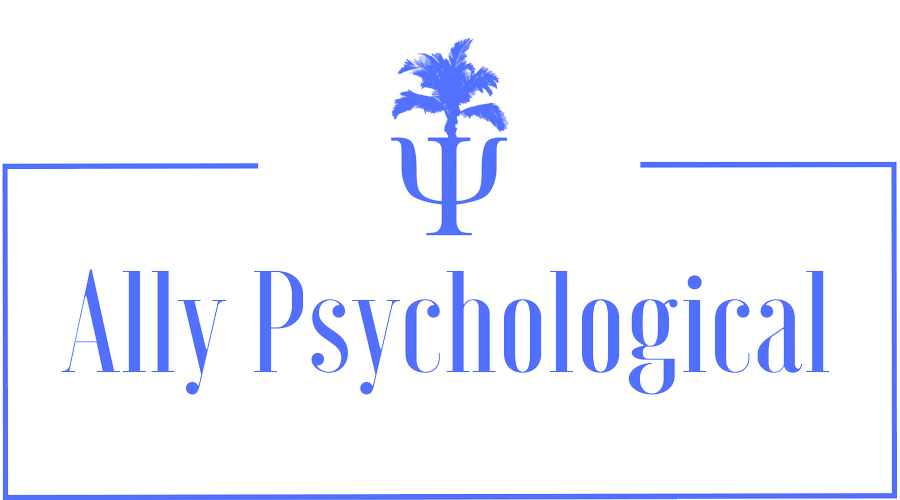Areas of Practice
individual therapy
In individual counseling or therapy, a client meets one-on-one with a therapist in 45-minute sessions. Such a working relationship may last for only a few sessions or may continue for much longer, depending on the needs of the client. We utilize evidenced-based treatments to effectively help clients deal with a variety of issues and improve their quality of life.
Clients come to us for a wide range of reasons, hoping to feel and function better. Common issues include: general anxiety and stress, difficult childhood and family experiences (past and present), relationship struggles, depression, and body image issues. Clients also come to us to work toward developing a better self-image, to explore existential themes (e.g. "What's my purpose?" or "Why am I here?"), or to achieve personal growth. The approach to such treatment varies from person to person, but may include a good deal of initial work involving the client's past experiences. For others, treatment may emphasize current experiences. We hope to always provide a supportive & non-judgmental environment in which our clients are able to work toward their unique goals.
Common psychotherapeutic treatment options include Cognitive Behavioral Therapy (CBT), Rational Emotive Behavioral Therapy (REBT), Acceptance and Commitment Therapy (ACT), Time Limited Dynamic Psychotherapy (TLDP), Dialectical Behavioral Therapy (DBT), Schema Therapy, Psychodynamic Therapy, Existential Therapy, Transference Focused Therapy, Interpersonal Therapy and many others.
couples therapy
Couples therapy focuses on the problems existing in the relationship between two people. In couples therapy, the psychologist will help you and your partner identify the conflict issues within your relationship, and will help you decide what changes are needed, in the relationship and in the behavior of each partner, for both of you to feel satisfied with the relationship.
These changes may be different ways of interacting within the relationship, or they may be individual changes related to personal psychological problems. Couples therapy involves learning how to communicate more effectively, and how to listen more closely. Couples must learn how to avoid competing with each other, and need to identify common life goals and how to share responsibilities within their relationship.
group therapy
Group psychotherapy is a special form of therapy in which a small number of people meet together under the guidance of a professionally trained therapist to help themselves and one another. The therapy has been widely used and has been a standard treatment option for over 50 years.
If you stop and think about it, each of us has been raised in group environments, either through our families, schools, organized activities, or work. These are the environments in which we grow and develop as human beings. Group psychotherapy is no different. It provides a place where you come together with others to share problems or concerns, to better understand your own situation, and to learn from and with each other.
Group therapy helps people learn about themselves and improve their interpersonal relationships. It addresses feelings of isolation, depression or anxiety. And it helps people make significant changes so they feel better about the quality of their lives. Additionally, group therapists can apply the principles of group to other settings and situations such as businesses, schools and community organizations.
neuropsychological assessment
A neuropsychological assessment involves a series of tests designed to measure a person’s cognitive domains including memory, attention, executive functioning, language, and visuoperceptual skills. Evaluation reports identify a diagnosis, describe areas of deficits, and facilitate treatment planning via individually tailored treatment recommendations. The purposes of a typical evaluation are:
- To aid in diagnosis.
- To identify cognitive strengths and weaknesses so that a person can better manage their academic, occupational, or social functioning.
- To help your physicians and other care providers develop a more holistic understanding of who you are as a patient and a person.
- To measure current levels of cognitive functioning that can be used to set goals for cognitive rehabilitation of weaker cognitive abilities.
- To provide recommendations for improving and preserving cognitive abilities.
Common conditions that might necessitate a formal neuropsychological evaluation include:
- Traumatic Brain Injury
- Stroke
- Brain Injury
- Concussion
- Age-related memory changes
- Brain tumor
- Alzheimer’s Disease
- Epilepsy
- Multiple Sclerosis
- Parkinson’s Disease
psychological assessment
A comprehensive psychological evaluation may be necessary to diagnose any number of emotional, behavioral, or developmental disorders in children, adolescents, and even adults.
These evaluations are made based on behaviors present in an individual and in relation to physical, genetic, environmental, social, cognitive, emotional, and educational components. We have highly skilled clinicians who are trained to administer a multitude of tests well regarded within the field of psychological evaluations.
psychoeducational assessment
A psychoeducational assessment is a comprehensive evaluation of cognitive, behavioral, and emotional functioning used to examine strengths and difficulties related to an individual's capacity to function in a learning environment. Psychoeducational assessments are appropriate for adults, adolescents, and children. Common conditions that may necessitate such an assessment include:
- Dyslexia: problems with reading, spelling, and writing (including transposing letters and pronunciation difficulties).
- Aphasia: difficulties with processing, speaking, or understanding language.
- Dyscalculia: problems with mathematical computations and concepts.
- Dysgraphia: difficulties with handwriting, spelling, and letter spacing.
- Dyspraxia: problems with gross motor tasks (walking) or fine motor tasks
(handling a pencil for writing or drawing). - Visual or Auditory Processing: difficulties in understanding information
presented through visual or auditory mediums; trouble with understanding
directions or following a conversation, spatial relationships, or social distances. - Short and Long-term Memory: problems with encoding or retrieving memories.
- Attention Deficit Hyperactivity Disorder (ADHD)
- Autism Spectrum Disorder (ASD)
Additionally, other common reasons for psychoeducational assessment include:
- Learning Difficulties (Reading, Writing, Mathematics)
- Gifted/Intelligence (IQ) Testing
- Extended time on tests (e.g., FCAT, SAT, ACT, GRE, LSAT, MCAT, etc.)
- Distraction free environment for tests
- Use of a calculator
- Use of a word processer for writing
- Substitution or waived courses
Common Questions
How can therapy help me?
A number of benefits are available from participating in therapy. Therapists can provide support, problem-solving skills, and enhanced coping strategies for issues such as depression, anxiety, relationship troubles, unresolved childhood issues, grief, stress management, body image issues and creative blocks. Many people also find that counselors can be a tremendous asset to managing personal growth, interpersonal relationships, family concerns, marriage issues, and the hassles of daily life. Therapists can provide a fresh perspective on a difficult problem or point you in the direction of a solution. The benefits you obtain from therapy depend on how well you use the process and put into practice what you learn. Some of the benefits available from therapy include:
- Attaining a better understanding of yourself, your goals and values
- Developing skills for improving your relationships
- Finding resolution to the issues or concerns that led you to seek therapy
- Learning new ways to cope with stress and anxiety
- Managing anger, grief, depression, and other emotional pressures
- Improving communications and listening skills
- Changing old behavior patterns and developing new ones
- Discovering new ways to solve problems in your family or marriage
- Improving your self-esteem and boosting self-confidence
Do I really need therapy? I can usually handle my problems.
Everyone goes through challenging situations in life, and while you may have successfully navigated through other difficulties you've faced, there's nothing wrong with seeking out extra support when you need it. In fact, therapy is for people who have enough self-awareness to realize they need a helping hand, and that is something to be admired. You are taking responsibility by accepting where you're at in life and making a commitment to change the situation by seeking therapy. Therapy provides long-lasting benefits and support, giving you the tools you need to avoid triggers, re-direct damaging patterns, and overcome whatever challenges you face.
Why do people go to therapy and how do I know if it is right for me?
People have many different motivations for coming to psychotherapy. Some may be going through a major life transition (unemployment, divorce, new job, etc.), or are not handling stressful circumstances well. Some people need assistance managing a range of other issues such as low self-esteem, depression, anxiety, addictions, relationship problems, spiritual conflicts and creative blocks. Therapy can help provide some much needed encouragement and help with skills to get them through these periods. Others may be at a point where they are ready to learn more about themselves or want to be more effective with their goals in life. In short, people seeking psychotherapy are ready to meet the challenges in their lives and ready to make changes in their lives.
What is therapy like?
Because each person has different issues and goals for therapy, therapy will be different depending on the individual. In general, you can expect to discuss the current events happening in your life, your personal history relevant to your issue, and report progress (or any new insights gained) from the previous therapy session. Depending on your specific needs, therapy can be short-term, for a specific issue, or longer-term, to deal with more difficult patterns or your desire for more personal development. Either way, it is most common to schedule regular sessions with your therapist (usually weekly).
It is important to understand that you will get more results from therapy if you actively participate in the process. The ultimate purpose of therapy is to help you bring what you learn in session back into your life. Therefore, beyond the work you do in therapy sessions, your therapist may suggest some things you can do outside of therapy to support your process - such as reading a pertinent book, journaling on specific topics, noting particular behaviors or taking action on your goals. People seeking psychotherapy are ready to make positive changes in their lives, are open to new perspectives and take responsibility for their lives.
What about medication vs. psychotherapy?
It is well established that the long-term solution to mental and emotional problems and the pain they cause cannot be solved solely by medication. Instead of just treating the symptom, therapy addresses the cause of our distress and the behavior patterns that curb our progress. You can best achieve sustainable growth and a greater sense of well-being with an integrative approach to wellness. Working with your medical doctor you can determine what's best for you, and in some cases a combination of medication and therapy is the right course of action.







